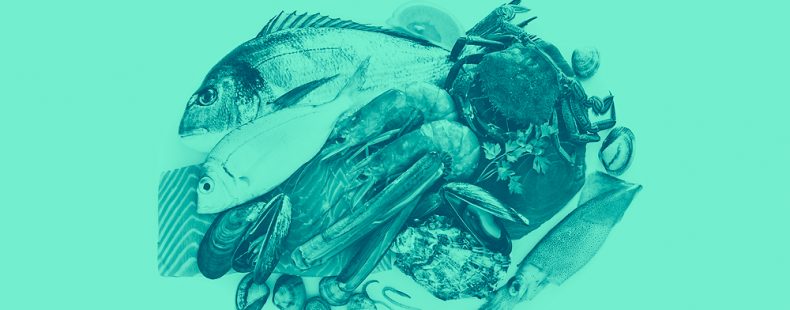Every year in the weeks leading up to Easter, many Christians around the world partake in Lent. The approximately 40-day observance comes with its own set of notable dates before and during that time period. One of the most prevalent customs is that followers abstain from meat on Fridays. Fish, however, is fair game.
That’s because fish has been considered somehow different from other types of meat—but to understand why that is, you’d have to delve into the history of fasting and also, words.
Nourish your intellect by learning about what Lent is, as well as the days leading up to it.
Why do Christians fast?
Fasting has been a part of religious observances since before Christianity. In fact, the Church prohibited meat on every Friday throughout the year until 1966. Jesus sacrificed his flesh on Good Friday, the reasoning went, so meat was avoided on Fridays in remembrance. Today, the meat-free days are limited to Lent’s seven Fridays and Ash Wednesday (the first day of Lent). Lent as we know it today started in 325 CE with the Council of Nicea, and fasting was included from the beginning.
There’s been an exception for fish from the start. Mammals and poultry were historically far more expensive, for one, while fish was a relatively cheap and plentiful protein. It also came down to language. The word for meat in Latin (historically the language of Christianity) is caro, and caro doesn’t include fish. In Ireland, the once common saying “neither fish, flesh, nor fowl neither this nor that” spoke to the three categories of animals with fish being separate from the other types of meat.
Biology is much more understood today than it was even a few decades ago, let alone centuries ago when these fasting rules were codified. Which may leave you fishing for an answer to the question: is fish considered meat?
What is fish?
When it comes to talking about fish as something that you eat, the word is defined as “the flesh of fishes used as food.” It comes from the Old English fisc and the German fisch.
The word fish covers a large swath of aquatic animals. At the most basic, most types of fish have vertebrae, gills, scales, and fins. Sharks, rays, sawfish, and skates belong to a category of fish known as elasmobranch, which have a tough cartilage body rather than vertebrae. There truly are, in a literal sense, many fish (and many types of fish) in the sea—as well as in oceans, rivers, lakes, and ponds.
What is meat?
Meat is defined as “the flesh of animals as used for food.” The word comes from the Old English word mete. You may notice something fishy about the definition of meat right off the bat: it refers to the flesh of “animals” that are used for food, which presumably could be taken as any animal that people eat—cows, pigs, chickens, and, yes, fish.
Before fishing out an answer by comparing the literal definitions of meat and fish, however, you also have to consider the original meaning of meat. The word meat originally referred in Old English to food in general, or “the edible part of anything, as a fruit or nut.” Essentially anything that was solid food as opposed to something that has to be drunk could fall under the meat category—including fish.
Old meanings die hard in language. A vestigial piece of the Old English definition can be seen today when people speak of the meat or flesh of an apple, peach, or other fruits and nuts. Another example of the original sense of meat surviving in English is the word sweetmeat, which means a “sweet delicacy, prepared with sugar, honey, or the like, as preserves, candy, or, formerly, cakes or pastry.”
From a culinary perspective, you may have noticed a dichotomy between restaurants that specify meat versus fish on the menu and those that don’t. Some eateries keep the meat side of the entree list specific to land animals, while others throw fish and the rest of the animals together.
What about the term protein?
Restaurants, food media, and people who like to dig deep into conversations about their food have increasingly been using the catch-all word protein rather than specifying between meat, fish, and plant-based meat alternatives.
Protein simply means “the plant or animal tissue rich in such molecules, considered as a food source supplying essential amino acids to the body.” In a way, this is similar to the Old English meaning of meat in that it refers not just to animals that we eat or to plants that we eat, but to food in general.
Meat is a major source of protein for many people, but there are, of course, plant foods rich in protein, including nuts, soybeans (and tofu), and lentils. Proteins provide long-lasting energy, making them a crucial part of our diets. Other macronutrients, such as fats and carbohydrates, provide energy as well.
We’re not sure what this all means for the fish sticks from deep in the freezer aisle, but from a definitions-based perspective, a fish out of water sure appears to be meat.














